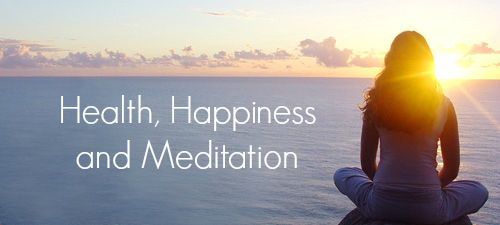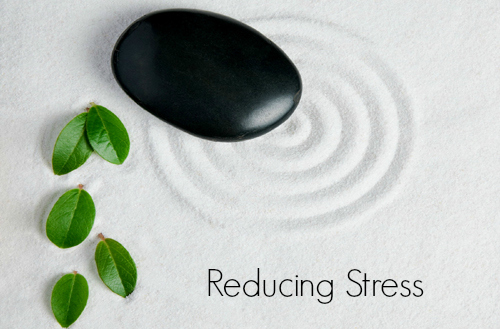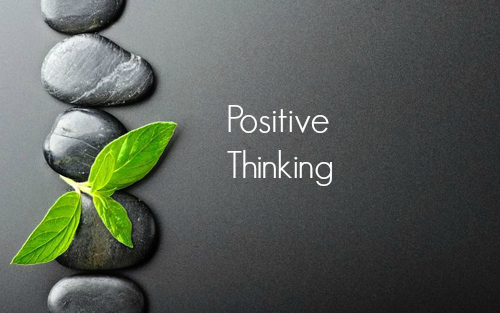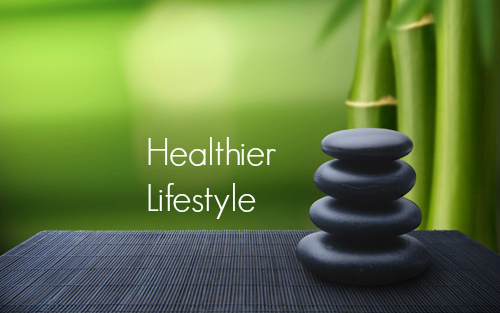As most of you will be aware, I am passionate about meditation. I’ve been attending weekly meditation classes for about seven years now, as well as practising alone at home and in the great outdoors. Since 2010, I’ve also been teaching children’s weekly meditation workshops. Along with the shift towards a 100% plant-based diet, meditation has definitely been key in raising my levels of physical and mental well-being these past few years.
Today, I am delighted to share a guest post from Holly Ashby who works for the London meditation centre, Will Williams Meditation. Holly is a super talented writer, and she’s kindly offered to write a mini introductory series on meditation for Bit of the Good Stuff. We’ll be posting one article per month for the next three months. I hope you enjoy them as much as I do ♥
In today’s post, Holly is talking about some of the benefits of meditation.

by Holly Ashby
Despite the fact that modern life has provided a level of comfort, convenience and material gain that would have been unthinkable even seventy years ago, many people are finding it increasingly difficult to be as healthy and happy as they could be. On the face of it this doesn’t make much sense, as for many people life is now characterised by stability and ease that’s unprecedented in human history, enough to make anyone cosily content.
Yet when you dig deeper, it’s possible to connect this unhappiness with the sometimes alienating nature of our modern lifestyles. Very long working hours, a culture that encourages you to constantly strive for something better and less time with family and friends all take their toll. Furthermore, there’s been a rapid shift away from living in small communities, where most people felt valued for their unique skills and what they could offer to that community. Now, even if you do feel valued in your field, there can be a pressure to keep achieving in order not to have your reputation fade or find yourself replaced.
This can be a very stressful way to live, and also one that perpetuates itself as we are encouraged to sacrifice our leisure time for future achievement and satisfaction that may never arrive. Habits such as this can leave you stressed, exhausted and unable to think clearly. These are all things that meditation can help alleviate, and it can even be part of a change of attitude that can improve your life. Here’s some of the benefits of meditation that can facilitate this change.

Our stress response, which evolved to put us in flight or fight mode in life-threatening situations, is triggered with unhealthy regularity by even trivial occurrences such as being late for work or your computer going on the blink at a crucial moment. When this happens, as your body is preparing itself to either leg it or start throwing punches, so all non-essential processes get neglected, heart rate increases and stress hormones are released.
While on occasion, and with plenty of recovery time, this response has no ill effects, when you are constantly stressed out it can be pretty harmful. This manifests itself in headaches, stomach upsets, and even increased risk of heart attacks or stroke, as well as all kinds of psychological issues such as anxiety.
Meditation can be an excellent way to balance you out as it produces physiological and biochemical changes that directly counteract the stress response, and on a much more profound level than ordinary rest. Meditators recover more quickly from stressful moments, and meditation helps calm down the areas of the brain which trigger the flight or fight response so they react more appropriately. Additionally, the stress hormone cortisol (which can build up in our systems and cause issues) can be reduced by up to a third in those who meditate.

One of the problems with stress is that it can make it hard to have perspective outside of immediate concerns and leave you apprehensive about the future. It’s easy in these situations to get locked in cycles of negative thinking that can stop you enjoying life fully, and sometimes even become self-fulfilling prophecies. This is can lead to sleepless nights and a general feeling of being drained of energy, making tasks you would otherwise embrace a dreaded struggle.
However, with stress reduced it’s much easier to think clearly and regain a natural inclination to look at the bright side of things. Meditation can improve sleep, increase your energy, and make you more productive. Studies have even shown that people who meditate find it easier to focus, helping you concentrate on completing jobs rather than worrying about them.
Also, in studies, the emotional centre of the brain in meditators has been shown to react more strongly when viewing pictures of people, suggesting that meditation increases empathy. In becoming more compassionate and forgiving of the people around you, you can change your worldview, and also invite more positive influences into your life. All this contributes to your happiness and the happiness of those close to you, allowing positivity to come instinctively to you, rather than it being something you consciously have to work at.

It’s much easier to think about making the right choices from a place of contentment with yourself and your life. Meditation in itself can make you healthier in body and mind, but it is also a great keystone habit from which to build a healthy lifestyle around. Doing things that are good for you can be a natural consequence when you are feeling less stressed, because instead of rushing through the day you have time to consider things more.
Ultimately, meditation can help when you are trying to prioritize the truly important things. Feeling good in yourself gives you a much better platform from which to realise what means the most to you, and allows you to focus on them.
Thanks Holly! ♥
I’d love to hear about your experiences of meditation! Are you interested in meditation? Do you already have a regular practice? If you have any questions you’d like to ask me, don’t hesitate to post them below xx

I enjoy meditating after every yoga practise. It helps the body to calibrate and attune, so that the benefits of a physical practise are maximised. It’s often cited as the favourite part of the class by individual yogis. I would love it to become part of the national curriculum.
teenyoga.co.uk is also a great resource. They publish studies and post articles regularly on the benefits of meditation and yoga for teens.
I love this article!! So much helpful information. I really want to make meditation a regular part of my life, as right now it’s somewhat sporadic. I was just reading how to set up a little altar, and I think having a designated cozy space for meditation would really help me get on track. I feel the benefits of my yoga practice and I know that combined with meditation it could really help me de-stress! Thanks Holly and Sharon!!
I’d love a dedicated ‘meditation/sacred’ space at home too, where any family member can go to meditate. Lil’ L’s keen as well and since he starts senior school in a couple of months, I think it’d really help him to establish a regular meditation practice. I have a Buddhist altar, but it’s in my office so not ideal at all!
I’ve been getting back into meditation lately, and using the headspace app to do 10 mins a day, usually first thing in the morning. I find it really helps to set the tone for the day and I am enjoying getting back to it.
I’ve been meaning to check out the Headspace App so thanks for reminding me! I think my other half would benefit from it too
Meditation is vital for me, really vital to my health and wellbeing.
I have been meditating for over 8 years now and do it everyday, first thing in the morning, a quick one at lunchtime and as part of my winding down in the evening too
I don’t think I would be as well as I am mentally or physically without meditation
I rejoice in how long you’ve managed to maintain a daily meditation practice ♥ I really need to take a leaf out of your book and get in the habit of meditating at a certain time of day (like I do with yoga). It’s so easy to fall in the ‘busyness’ trap at home and keep thinking, I’ll get x,y,z done and then sit down and meditate. For others (like me) that get distracted at home, classes can be a great way to get into a regular meditation practice. I find having an experienced meditation teacher really helpful too xx
I have to get up, do morning things, 20 mins of yoga, 20 mins of meditation. Then I do my journalling and then an hour of writing.
Of course I don’t have children, so it is all a lot easier for me!!
I did attend lots of classes and retreats and two mindfulness based cognative therapy courses over that time and those have helped me keep a practice.
Now my husband tells me to go and meditate, which is quite amusing, apparently it shows very quickly if I let it lapse!
Hehe the cheek of him!
Meditation after yoga sounds a good habit to get into. I’m enjoying meditating outside at the moment… maybe I should take my yoga practice outside too (while the weather’s actually nice!)
I’m inspired; also enjoyed Rich Roll’s podcast, Zen of WuDe. There’s something here that I need to explore….
Great to hear you’re inspired I’m loving Rich Roll’s podcasts too. I haven’t managed to listen to Zen of WuDe yet but hopefully I’ll get time tonight (while I tackle the mountain of ironing)
I’m loving Rich Roll’s podcasts too. I haven’t managed to listen to Zen of WuDe yet but hopefully I’ll get time tonight (while I tackle the mountain of ironing)
This is brilliant I confess I am not a meditator, and I find it really hard, but I love that more and more research is coming out on the benefits. It’s a far more holistic approach to advocate than medical approaches to well-being (which, of course, are more about treating illness or depression rather than promoting health and happiness).
I confess I am not a meditator, and I find it really hard, but I love that more and more research is coming out on the benefits. It’s a far more holistic approach to advocate than medical approaches to well-being (which, of course, are more about treating illness or depression rather than promoting health and happiness).
Meditation is such a useful tool for keeping the mind in a healthy, positive place and for managing any stress/anxiety that’s trying to creep in. I’d love to see all children taught how to meditate, then they would have the tools for life. Hopefully with all the research that’s being published, more schools will start adding it to the curriculum.
I worked on a project in Australia that involved evaluating the effectiveness of a mindfulness program on emotional well being in early secondary school girls The results were promising – I too hope that this sort of thing gets added to standard curriculum in time!
The results were promising – I too hope that this sort of thing gets added to standard curriculum in time!
What an interesting project to work on! Meditation/mindfulness and the effects on young people is definitely a subject that I’d like to learn more about.